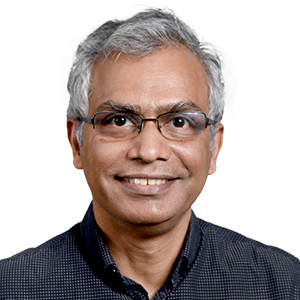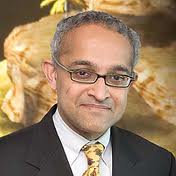Shri FC Kohli Day
Kohli Centre of Intelligent Systems (KCIS) at IIITH commemorates the birth anniversary of Sri FC Kohli with
a special program celebrating his life through nurturing research and innovation.
20th March 2023
2:00 - 2:15 PM [IST]
Inauguration and Welcome Address
Introduction FC Kohli Day
2:15 - 3.15 PM [IST]
First Keynote by Prof Subbarao Kambhampati, Department of Computer Science and Engineering, School of Computing & AI, Arizona State University
3:15 - 4:45 PM [IST]
Leadership, Innovation and Self Reliance in Technologies
Technical Panel
Rachna Dave MicroGO
Rachana Tripathi Huwel Lifesciences
Ashutosh Richhariya Tractrix Optodynamics
Swarup Medasani Mathworks
Moderator
Ananth Krishnan Tata Consultancy Services
4:45 - 5:15 PM [IST]
High Tea
5.15 - 6:30 PM [IST]
Alumni Interaction
Dip Sankar Banerjee Assistant Professor, at Indian Institute of Technology Jodhpur
Ishan Misra Research Scientist at Facebook AI Research (FAIR)
Divya Sai Jitta NLP Data Scientist at Shell Technology Centre
6:30 – 7:30 PM [IST]
Second keynote by Prof V S Subrahmanian, Walter P. Murphy Professor of Computer Science
Faculty Fellow at the Northwestern Buffett Institute for Global Affairs

Prof. Subbarao Kambhampati
Department of Computer Science and Engineering,
School of Computing & AI, Arizona State University
School of Computing & AI, Arizona State University
Keynote Talk on “Beyond Nodding & Pointing: Widening Explainable and Advisable Human-AI Interaction”
Abstract: Despite the surprising power of many modern AI systems that often learn their own representations, there is significant discontent about their inscrutability and the attendant problems in their ability to interact with humans. While alternatives such as neuro-symbolic approaches have been proposed, there is a lack of consensus on what they are about. There are often two independent motivations (i) symbols as a lingua franca for human-AI interaction and (ii) symbols as system-produced abstractions used by the AI system in its internal reasoning. The jury is still out on whether AI systems will need to use symbols in their internal reasoning to achieve general intelligence capabilities. Whatever the answer there is, the need for (human-understandable) symbols in human-AI interaction seems quite compelling. In particular, humans would be interested in providing explicit (symbolic) knowledge and advice -- and expect machine explanations in kind. This alone requires AI systems to maintain a symbolic interface for interaction with humans. In this talk, I will motivate this point of view, and describe recent efforts in our research group along this direction.
Bio:Subbarao Kambhampati is a professor of computer science at Arizona State University. Kambhampati studies fundamental problems in planning and decision making, motivated by the challenges of human-aware AI systems. He is a fellow of Association for the Advancement of Artificial Intelligence, American Association for the Advancement of Science, and Association for Computing machinery, and was an NSF Young Investigator. He served as the president of the Association for the Advancement of Artificial Intelligence, a trustee of the International Joint Conference on Artificial Intelligence, the chair of AAAS Section T (Information, Communication and Computation), and a founding board member of Partnership on AI. Kambhampati’s research as well as his views on the progress and societal impacts of AI have been featured in multiple national and international media outlets. He can be followed on Twitter @rao2z.
Know more
Bio:Subbarao Kambhampati is a professor of computer science at Arizona State University. Kambhampati studies fundamental problems in planning and decision making, motivated by the challenges of human-aware AI systems. He is a fellow of Association for the Advancement of Artificial Intelligence, American Association for the Advancement of Science, and Association for Computing machinery, and was an NSF Young Investigator. He served as the president of the Association for the Advancement of Artificial Intelligence, a trustee of the International Joint Conference on Artificial Intelligence, the chair of AAAS Section T (Information, Communication and Computation), and a founding board member of Partnership on AI. Kambhampati’s research as well as his views on the progress and societal impacts of AI have been featured in multiple national and international media outlets. He can be followed on Twitter @rao2z.
Know more
Prof V S Subrahmanian
Walter P. Murphy Professor of Computer Science Faculty Fellow at the Northwestern Buffett Institute for Global Affairs
Keynote talk on “Using AI to Enhance Global Security”
Abstract: I will describe our ongoing work to solve three broad classes of global security problems. First, I will describe NTEWS, the Northwestern Terror Early Warning System. NTEWS is a system under development that will predict the types and targets of terror groups, as well as methods to reshape their behavior. Second, I will discuss our ongoing NCEWS system, a framework to predict if a cyber-vulnerability will be exploited, when such an exploit might happen, and how severe the resulting exploit might be. Third, I will describe recent work on understanding border conflicts. I will conclude with a set of possible future research directions.
Bio: V.S. Subrahmanian is the Walter P. Murphy Professor of Computer Science and Buffet Faculty Fellow in the Buffet Institute of Global Affairs at Northwestern University. He was previously the Dartmouth College Distinguished Professor in Cybersecurity, Technology, and Society and Director of the Institute for Security, Technology, and Society at Dartmouth. Earlier, served as a Professor of Computer Science at the University of Maryland from 1989-2017 where he also served for 6+ years as Director of the University of Maryland's Institute for Advanced Computer Studies. Prof. Subrahmanian is one of the world’s foremost experts at the intersection of AI and security issues. He pioneered the development of machine learning and AI-based techniques to analyze counterterrorism, cybersecurity, text, geospatial, and social network based data in order to generate forecasts of various types of outcomes. He has written eight books, edited ten, and published over 300 refereed articles. He is an elected Fellow of the American Association for the Advancement of Science and the Association for the Advancement of Artificial Intelligence and received numerous other honors and awards. His work has been featured in numerous outlets such as the Baltimore Sun, the Economist, the Wall Street Journal, Science, Nature, the Washington Post, American Public Media and more. He serves on the editorial boards of numerous journals including Science, and currently serves on the Board of Directors of SentiMetrix, Inc. and on the Research Advisory Board of Tata Consultancy Services. He previously served on the Board of Directors of the Development Gateway Foundation (set up by the World Bank), DARPA’s Executive Advisory Council on Advanced Logistics and as an ad-hoc member of the US Air Force Science Advisory Board.
Know more
Bio: V.S. Subrahmanian is the Walter P. Murphy Professor of Computer Science and Buffet Faculty Fellow in the Buffet Institute of Global Affairs at Northwestern University. He was previously the Dartmouth College Distinguished Professor in Cybersecurity, Technology, and Society and Director of the Institute for Security, Technology, and Society at Dartmouth. Earlier, served as a Professor of Computer Science at the University of Maryland from 1989-2017 where he also served for 6+ years as Director of the University of Maryland's Institute for Advanced Computer Studies. Prof. Subrahmanian is one of the world’s foremost experts at the intersection of AI and security issues. He pioneered the development of machine learning and AI-based techniques to analyze counterterrorism, cybersecurity, text, geospatial, and social network based data in order to generate forecasts of various types of outcomes. He has written eight books, edited ten, and published over 300 refereed articles. He is an elected Fellow of the American Association for the Advancement of Science and the Association for the Advancement of Artificial Intelligence and received numerous other honors and awards. His work has been featured in numerous outlets such as the Baltimore Sun, the Economist, the Wall Street Journal, Science, Nature, the Washington Post, American Public Media and more. He serves on the editorial boards of numerous journals including Science, and currently serves on the Board of Directors of SentiMetrix, Inc. and on the Research Advisory Board of Tata Consultancy Services. He previously served on the Board of Directors of the Development Gateway Foundation (set up by the World Bank), DARPA’s Executive Advisory Council on Advanced Logistics and as an ad-hoc member of the US Air Force Science Advisory Board.
Know more

